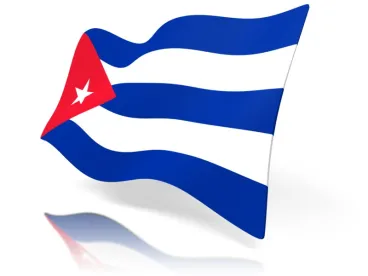No changes in connection with the U.S. – Cuba embargo and sanctions will be effective until OFAC and the Commerce Department formally revise their respective regulations and general licenses to implement the President's new stated policies. These changes are not self-executing and will take weeks to be appropriately implemented.
In a surprise announcement yesterday, President Obama disclosed fundamental changes in the United States’ relationship with Cuba, including immediately reopening discussions with Cuba and establishing an embassy in Havana in the next few months. The Obama Administration also will relax the U.S. economic embargo on Cuba, permitting easier travel and expanded business activities such as sales and exports of certain types of goods and services to Cuba, including telecommunications devices, infrastructure, and services.
The scope of the changes will become clearer over the following weeks, as amendments to the Cuba Assets Control Regulations are made by the U.S. Department of the Treasury’s Office of Foreign Assets Control, and to the Export Administration Regulations by the Department of Commerce. In the interim, it is important to understand that many of the changes announced today, and all of those requiring changes to existing regulations, will not take effect until those new regulations are released. In addition, lifting the full embargo will require congressional cooperation, since many of the restrictions have been imposed by statute. The President acknowledged this in his statement, saying, “These are the steps that I can take as President to change this policy. The embargo that’s been imposed for decades is now codified in legislation. As these changes unfold, I look forward to engaging Congress in an honest and serious debate about lifting the embargo.”[1]
Not surprisingly, however, the President’s announcement was met with strident objections from several members of Congress, including Representative Ed Royce (R-CA), Chairman of the House Foreign Affairs Committee, who expressed dismay that the President did not engage Congress “on this serious policy shift.”[2] Similarly, Representative Ileana Ros-Lehtinen (R-FL), Chairman of the Middle East and North Africa Subcommittee, indicated her belief that the President may have violated several laws by taking unilateral action without congressional consultation.[3]
In addition to the broader foreign policy shifts, implementing regulations will address the following areas:
-
Travel: Traveling to Cuba will likely become easier, as general licenses (rather than specific licenses) will authorize travel for all authorized travelers in 12 existing categories. Such travel will continue to be restricted by regulation, however, and it does not appear that conventional tourism will be included in this relaxation.
-
The 12 categories are (1) family visits; (2) official business of the U.S. Government, foreign governments, and certain intergovernmental organizations; (3) journalistic activity; (4) professional research and professional meetings; (5) educational activities; (6) religious activities; (7) public performances, clinics, workshops, athletic and other competitions, and exhibitions; (8) support for the Cuban people; (9) humanitarian projects; (10) activities of private foundations or research or educational institutes; (11) exportation, importation, or transmission of information or information materials; and (12) certain export transactions that may be considered for authorization under existing regulations and guidelines.
-
Licensed U.S. travelers to Cuba will be authorized to import $400 worth of goods from Cuba, of which no more than $100 can consist of tobacco products and alcohol combined.
-
-
Telecommunications:
-
Commercial export of certain items that will contribute to the ability of the Cuban people to communicate with people in the United States and the rest of the world will be authorized, including commercial sale of certain consumer communications devices, related software, applications, hardware, and services, and items for the establishment and update of communications-related systems.
-
U.S. telecommunications providers will be allowed to establish necessary mechanisms, including infrastructure, in Cuba to provide commercial telecommunications and Internet services.
-
-
Financial Services:
-
U.S. institutions will be permitted to open correspondent accounts at Cuban financial institutions to facilitate the processing of authorized transactions.
-
The regulatory definition of the statutory term “cash in advance” will be revised to specify that it means “cash before transfer of title”; this will provide more efficient financing of authorized trade with Cuba.
-
U.S. credit and debit cards will be permitted for use by travelers to Cuba.
-
Caps on remittances to Cuba by U.S. persons will be increased (from $500 to $2,000 per quarter for general donative remittances to Cuban nationals). Remittance forwarders will no longer require specific licenses to conduct such business.
-
-
Exports: Commercial sales/exports from the United States of certain types of goods and services will be expanded. These categories are likely to include building materials for private residential construction, goods for use by private-sector Cuban entrepreneurs, and agricultural equipment for small farmers.
-
Sanctions:
-
The United States will review its designation of Cuba as a State Sponsor of Terrorism.
-
U.S.-owned or -controlled entities in third countries will be generally licensed to provide services to, and engage in financial transactions with, Cuban individuals in third countries.
-
General licenses will unblock the accounts at U.S. banks of Cuban nationals who have relocated outside of Cuba.
-
U.S. persons will be permitted to participate in third-country professional meetings and conferences related to Cuba.
-
Foreign vessels will be permitted to enter the United States after engaging in certain types of humanitarian trade with Cuba.
-
[1] Press Release, The White House, Statement by the President on Cuba Policy Changes, (Dec. 17, 2014), available here.
[2] Chairman Royce Statement on Release of Alan Gross, U.S.-Cuba Relations, Dec. 17, 2014, available here.
[3] Ros-Lehtinen Statement on the Release of Alan Gross, Dec. 17, 2014,available here.
Jerome Akman, Rebecca Hartley, Yoshihide Ito, Ulises Pin and Carl Valenstein contributed to this story.





 />i
/>i
